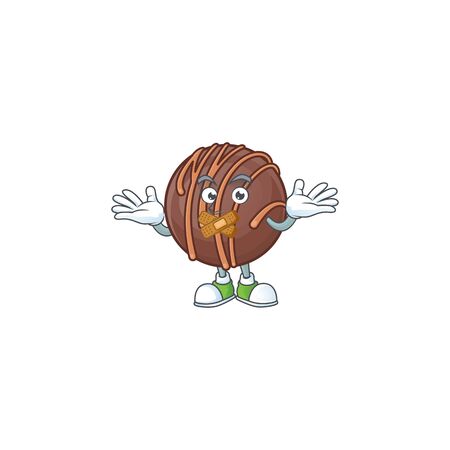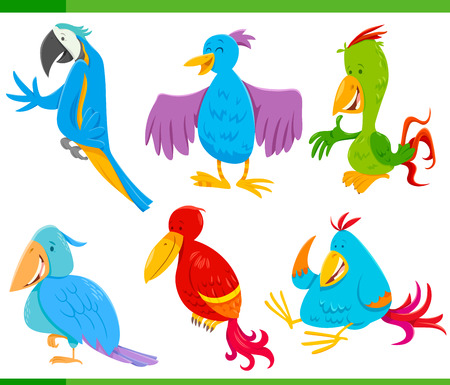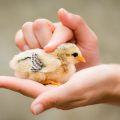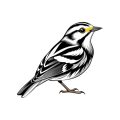Choosing the Right Cage for Your Bird
One of the most important decisions for every UK bird owner is selecting the right cage to ensure your feathered companion’s health and happiness. The perfect cage provides a safe, spacious, and comfortable environment that meets the unique needs of different bird species commonly kept in British homes, such as budgies, canaries, cockatiels, and finches. A well-chosen cage supports physical activity, mental stimulation, and overall well-being.
Considerations When Selecting a Bird Cage
- Size Matters: Birds require ample space to stretch their wings and fly short distances. Always choose the largest cage your home and budget allow, bearing in mind that horizontal space is usually more valuable than vertical height.
- Bar Spacing & Strength: The spacing between bars should be appropriate for your bird’s size to prevent escape or injury. For example, budgies need narrower bar spacing than cockatiels. The bars should also be sturdy enough to withstand chewing or climbing.
- Safe Materials: Opt for cages made from non-toxic metals with lead-free coatings. Avoid painted finishes that may chip or rust in the damp UK climate.
- Easy Cleaning: Removable trays and wide doors make routine cleaning simpler, keeping your bird’s environment hygienic and reducing the risk of illness.
Cage Recommendations by Bird Species
| Bird Species | Minimum Cage Size (cm) | Recommended Bar Spacing |
|---|---|---|
| Budgie (Parakeet) | 60 x 40 x 50 | 1 cm |
| Canary | 45 x 35 x 45 | 1 – 1.5 cm |
| Cockatiel | 75 x 45 x 60 | 1 – 1.5 cm |
| Zebra Finch | 60 x 40 x 40 | 1 cm |
Top Tips for UK Bird Owners
- Avoid placing cages in draughty areas or direct sunlight—UK weather can be unpredictable and temperature changes can stress birds.
- If you’re housing multiple birds, provide extra space to minimise squabbles and ensure each bird has room to retreat when needed.
Your bird’s cage is their sanctuary—by investing in a suitable home, you lay the foundation for a happy, healthy companion who will brighten your days for years to come.
2. Perches: Comfort and Health for Little Feet
When it comes to creating a comfortable and stimulating environment for your feathered companion, providing a variety of perches is absolutely essential. In the UK, where many bird owners keep species such as budgies, cockatiels, or canaries indoors for much of the year, ensuring your bird’s cage mimics their natural habitat can make all the difference to their wellbeing.
Why Varied Perches Matter
Birds spend most of their lives standing and moving along perches, so the type and arrangement of these supports play a critical role in maintaining their foot health. Using only standard dowel or plastic perches can lead to discomfort, pressure sores (bumblefoot), and even arthritis over time. Instead, offering an assortment of perch materials and diameters encourages exercise and natural behaviours, helping to keep your bird’s feet supple and healthy.
Types of Perches to Include
| Type of Perch | Main Benefits | UK Availability |
|---|---|---|
| Natural Wood (e.g., apple, hazel) | Mimics wild branches; promotes grip; wears down claws naturally | Common in UK pet shops & garden centres |
| Rope Perches | Soft texture; flexible placement; gentle on feet | Widely available online and in-store |
| Sandy/Concrete Perches | Aids claw trimming; provides rough texture for exercise | Specialist pet retailers across the UK |
| Ladder Perches | Adds climbing opportunities; mental stimulation | Found in most UK bird accessory sections |
Tips for Setting Up Perches in Your Bird Cage
- Mix up thicknesses to encourage foot muscle development.
- Avoid placing perches directly above food or water bowls to prevent contamination.
- Rotate and clean perches regularly to maintain hygiene and interest.
- If using natural wood from outdoors, ensure it is untreated and free from pesticides common in UK gardens.
A Happy Bird is an Active Bird
Diverse perching options not only help prevent boredom but also stimulate your bird’s mind and body, supporting happier, healthier pets. By investing in varied perches tailored to your bird’s needs—and sourcing them locally when possible—you’re one step closer to creating an enriching home that any British bird would love.

3. Feeding Accessories: Keep It Fresh and Safe
Ensuring your bird has access to fresh food and clean water is crucial for their overall health and happiness. In the UK, where temperature and humidity can fluctuate, it’s especially important to select the right feeding accessories for your feathered friend’s cage.
Essential Food and Water Dispensers
Choosing sturdy, easy-to-clean feeders and drinkers helps prevent contamination and keeps your bird’s diet safe. Stainless steel or high-quality plastic feeders are recommended, as they resist bacteria build-up better than porous materials like wood. Here’s a quick comparison of popular options:
| Accessory Type | Best Material | Benefits |
|---|---|---|
| Food Bowls | Stainless Steel | Durable, hygienic, dishwasher safe |
| Water Dispensers | BPA-Free Plastic/Glass | Easy monitoring, less spillage, maintains freshness |
| Seed Guards/Trays | Plastic/Metal Mesh | Keeps cage tidy, reduces waste |
Keeping Accessories Clean
Birds in the UK are susceptible to illnesses if feeders aren’t cleaned regularly. It’s advised to wash food and water containers daily using hot soapy water, followed by a thorough rinse. Once a week, disinfect with a bird-safe cleaner to eliminate harmful germs. Always dry accessories completely before refilling to prevent mould growth.
Top Cleaning Tips:
- Avoid harsh chemicals; use products designed for avian use.
- Have two sets of bowls on rotation for convenience.
- Check for cracks or wear—replace damaged items promptly.
Offering a Varied Diet for UK Birds
A balanced diet is key to your pet’s wellbeing. Alongside high-quality seed mixes or pellets formulated for your bird’s species, supplement their meals with fresh British greens (like kale or spinach), small portions of fruit (apple slices or berries), and occasional protein sources such as boiled egg or mealworms for omnivorous birds. Be mindful of seasonal changes; adjust fresh offerings based on availability and always remove uneaten fresh food after a few hours to prevent spoilage.
4. Toys and Enrichment for Mental Stimulation
Keeping your bird mentally stimulated is just as important as meeting their physical needs. In the UK, a wide variety of toys and enrichment accessories are readily available to help prevent boredom, encourage natural behaviours, and support your feathered companion’s mental health. Birds are intelligent creatures that thrive on interaction and challenge. Without suitable enrichment, they can develop behavioural issues such as feather plucking or excessive vocalisation.
Why Mental Stimulation Matters
Enrichment activities promote natural behaviours like foraging, problem-solving, and playing—vital for your bird’s wellbeing. Regularly rotating toys and introducing new challenges keeps your pet engaged and reduces the risk of stress-related illnesses.
Popular UK-Available Bird Toys
| Toy Type | Description | Example UK Brands |
|---|---|---|
| Foraging Toys | Encourage birds to search for food, mimicking wild behaviour. | Happy Pet, Rosewood |
| Chewable Toys | Made from safe woods or natural fibres; help maintain beak health. | Nature’s First, Bird Kabob |
| Bells & Mirrors | Stimulate curiosity and provide auditory/visual engagement. | Classic Pet Products, Ancol |
| Ladders & Swings | Promote exercise, balance, and exploration within the cage. | Happy Pet, Liberta |
Natural Materials for Safe Play
Select toys made from bird-safe materials such as untreated wood, vegetable-dyed rope, or stainless steel. Avoid plastic parts that could easily break or small pieces that might be ingested.
Tips for Effective Enrichment
- Rotate toys weekly to maintain interest.
- Mix different types of toys to target various senses.
- Supervise your bird with new items initially to ensure safety.
The right mix of toys and enrichment options not only prevents boredom but also nurtures your bird’s intelligence and emotional health, ensuring a happier life for your feathered friend in any British home.
5. Cage Liners and Hygiene Essentials
Maintaining a clean and hygienic cage environment is vital for your bird’s health and happiness. Choosing the right cage liners and hygiene products helps minimise odours, prevents bacteria build-up, and makes daily cleaning far easier. In the UK, there are several safe and eco-friendly options tailored to local preferences and availability.
Safe Cage Liner Options
Avoid using newspaper with coloured ink or glossy paper, as these may contain harmful chemicals. Instead, opt for purpose-made cage liners or plain, unprinted paper. The table below compares popular UK-friendly cage liner options:
| Liner Type | Key Benefits | Availability in UK |
|---|---|---|
| Paper-Based Liners | Absorbent, easy to replace, safe if ingested | Widely available in pet shops & online |
| Corn Cob Bedding | Natural material, controls odour well | Available in specialist pet stores |
| Sand Sheets (for budgies/canaries) | Aids nail trimming, easy to remove | Common in UK supermarkets & pet shops |
Easy Cleaning Tips for Bird Owners
- Replace cage liners daily to prevent waste build-up and reduce odour.
- Wipe down perches and bars with a bird-safe disinfectant at least once a week.
- Wash food and water bowls with hot soapy water daily; rinse thoroughly to avoid residue.
Recommended UK Hygiene Products
Look for avian-safe cleaning sprays such as Johnson’s Clean ‘n’ Safe or Beaphar Cage Disinfectant, both widely stocked in UK pet stores. Microfibre cloths are also excellent for wiping cages without leaving fibres behind.
Summary Table: Essential Hygiene Accessories
| Accessory | Main Use |
|---|---|
| Cage Liners | Absorbs droppings, simplifies cleaning |
| Bottle Brush | Cleans narrow water dispensers effectively |
| Disinfectant Spray (bird-safe) | Keeps surfaces germ-free without harming birds |
A clean cage not only keeps your feathered friend healthy but also ensures your home remains fresh and inviting. By investing in quality cage liners and proven hygiene products, every UK bird owner can provide a safer and more comfortable living space for their beloved pets.
Bathing and Grooming Accessories
Keeping your bird’s feathers clean and well-maintained is crucial for their health and happiness, especially in the varied British climate. Bathing not only helps birds keep their plumage pristine but also supports skin health and reduces stress. Here’s a review of the best bathing options and grooming tools suitable for UK bird owners.
Top Bathing Options for Birds
| Bath Type | Description | Best For | Weather Suitability (UK) |
|---|---|---|---|
| Cage Bird Baths | Attachable plastic or acrylic baths that fit inside or outside the cage door. | Small to medium birds (budgies, canaries, finches) | Year-round use indoors; easy to refill and clean. |
| Mist Sprays | Gentle water sprays that mimic natural rainfall, ideal for sensitive birds. | All species, especially those averse to immersion | Perfect for dry indoor heating during winter months. |
| Freestanding Baths | Larger, basin-style baths placed inside aviaries or outdoor cages. | Larger parrots and communal bathing species | Best used in warmer weather or heated indoor aviaries. |
Grooming Tools for British Birds
The damp and often chilly British weather can sometimes make it challenging for birds to maintain their feather condition naturally. Regular grooming supports healthy preening and prevents issues such as overgrown nails or beaks. Consider these essential grooming accessories:
- Nail Clippers: Specially designed small clippers help keep claws at a comfortable length, reducing the risk of injury from snagging on cage bars.
- Perch Variety: Different textures—such as natural wood, sanded perches, or rope—promote healthy feet and gently file down nails as your bird moves about.
- Moulting Aids: Supplements or sprays can ease discomfort during seasonal moulting, which is common in the UK’s fluctuating temperatures.
- Soft Brushes: For larger or more tolerant birds, soft bristle brushes can assist with removing loose feathers during heavy moults.
Top Tips for Bathing & Grooming Success in the UK Climate
- Bathe your bird earlier in the day so they have time to dry off before evening chills set in.
- Avoid draughts when your bird is wet; place baths away from open windows or doors.
- Monitor humidity levels indoors—central heating can dry out skin and feathers, so mist sprays are particularly beneficial in winter.
- Always supervise first-time bathers to ensure they feel safe and confident with their new bathing accessory.
Summary
Selecting the right bathing and grooming accessories ensures your feathered friend stays happy and healthy all year round. With proper care tailored to the unique British environment, you’ll enjoy watching your bird flourish—clean, comfortable, and full of life!
7. Safety and Comfort: Covers and Night-Time Accessories
Ensuring your bird’s safety and comfort overnight is vital, especially given the fluctuating temperatures and seasonal changes across the UK. A calm, secure environment helps birds feel settled and reduces stress-related behaviours. Below, we explore essential accessories and tips to provide a restful night for your feathered companions.
Cage Covers: Creating a Cosy Retreat
Cage covers are a must-have for British bird owners. A well-fitted cover blocks out drafts, light, and sudden noises, mimicking dusk and allowing birds to rest undisturbed. Choose breathable fabrics such as cotton or fleece to prevent overheating while still providing insulation. Ensure the cover fits snugly but allows for sufficient airflow.
Benefits of Using Cage Covers
| Benefit | Description |
|---|---|
| Reduces Stress | Diminishes exposure to household activity and sudden movements at night. |
| Improves Sleep Quality | Darkness signals bedtime, encouraging healthy sleep cycles. |
| Maintains Temperature | Helps insulate against chilly UK evenings, especially in winter months. |
Temperature Considerations: Adapting to British Weather
The UK’s weather can be unpredictable, with cold snaps even outside winter. It is crucial to monitor the room temperature where your birdcage is kept. Avoid placing cages near radiators or draughty windows. For extra chilly nights, consider using a heated perch or cage-safe heat pad (never hot water bottles or electric blankets) designed specifically for birds.
Recommended Temperature Range for Common Pet Birds in the UK:
| Bird Type | Ideal Night-Time Temperature |
|---|---|
| Budgerigar | 18–22°C |
| Cockatiel | 18–24°C |
| Canary/Finch | 15–21°C |
Comfort Items: Security Through Every Season
Add soft perches or flat resting platforms to support your bird’s feet during rest. Snuggle huts or tent-like accessories can offer additional comfort; however, always choose products made from non-toxic materials and inspect regularly for loose threads or damage. In colder months, a little extra bedding—like shredded paper or safe nesting material—can help smaller species stay warm without compromising hygiene.
Top Tips for Night-Time Bird Comfort:
- Ensure complete darkness by switching off nearby lights or using blackout covers.
- Keep noise levels low around bedtime to help birds settle faster.
- Regularly check cage accessories for wear and tear to maintain safety.
A thoughtful approach to nighttime care—including the right covers, temperature controls, and comfort items—ensures your feathered friend stays content throughout Britain’s ever-changing seasons.


